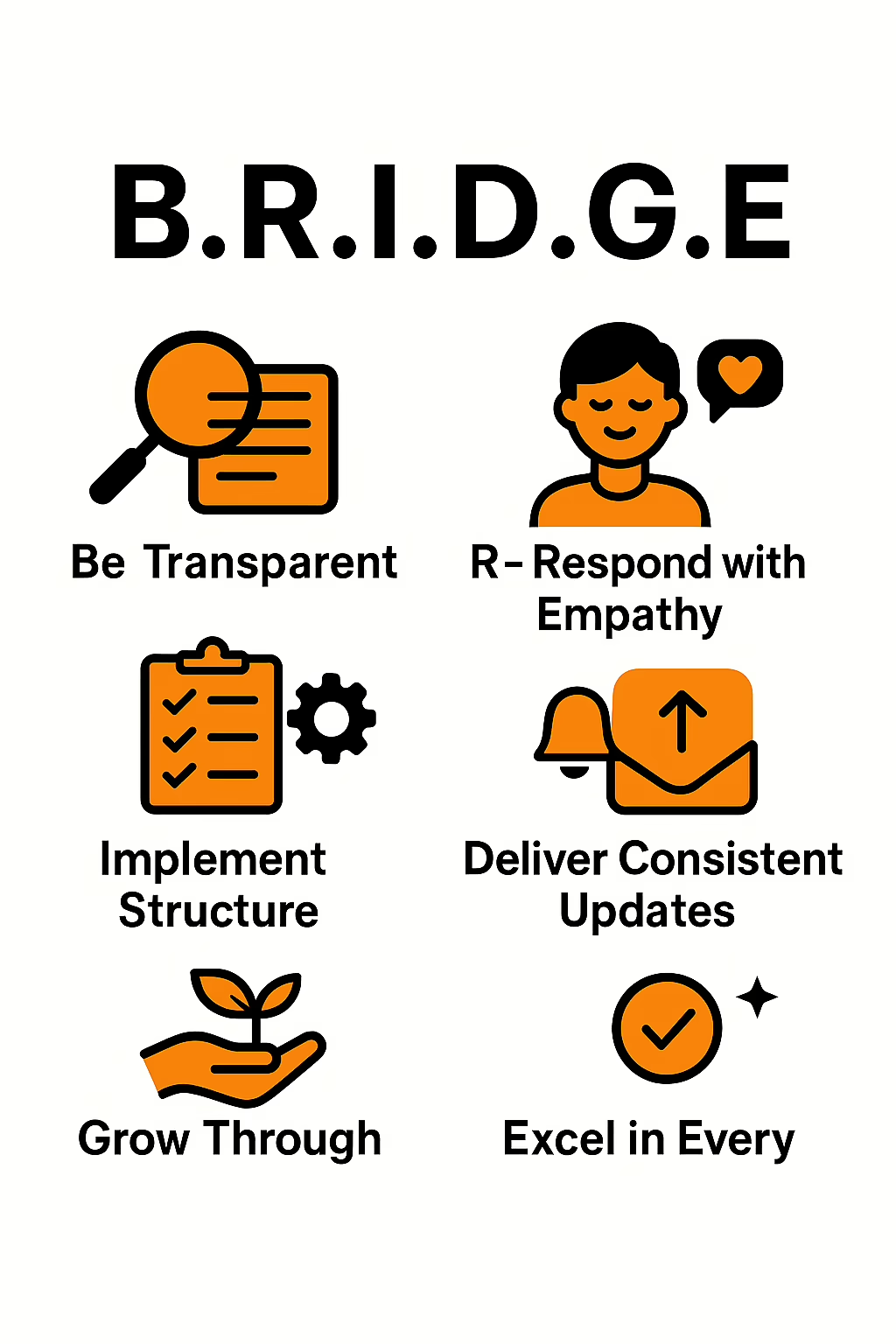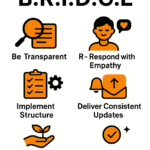As a law student, you consume copious volumes of information on every conceivable subject under the law. However, one thing law school doesn’t teach is the intricacies of starting, managing, and growing a successful law firm.
The most prevalent narrative around entrepreneurship, within and outside the legal space, is its difficulty. However, “difficult” is too vague a term to be helpful.
Therefore, today, we feature Stella Muraguri’s version of “difficult,” so to speak. Stella Muraguri is the Founding and Managing Partner at MMW Advocates LLP. Ms. Muraguri was the 1st runner-up under the SME Law Firm of the Year category during the third edition of the Nairobi Legal Awards.
Keep reading to unpack Ms. Muraguri’s “baptism by fire” as a law entrepreneur. We’ll explore the strategies she employed to raise capital, find clients, upskill for management, diversify her practice’s income streams, and the challenges she faces throughout the journey. Additionally, we’ll highlight the unique challenges women in legal entrepreneurship face and how to overcome them.
Reasons To Start Your Own Law Firm in Kenya
According to a report (Wahome Ngatia’s article) published on The Law Down, a toxic work environment during employment is the primary reason Kenyan advocates venture into legal entrepreneurship. Therefore, they launch legal practices to create a healthy and wholesome work environment for themselves and future employees.
So, does Stella Muraguri’s story align with these findings? Stella’s journey into legal practice began at pupillage, which she did at a law firm. She focused on the pro-borrower anti-bank litigation niche.
After pupillage, she moved to the corporate space as a legal officer. “I had already tasted what practice looks like, but there was a lot of push toward the corporate space at the time because they earned more.”
However, Stella found the mundane nature of corporate life exhausting. “When you switch the tempo from litigation to giving instructions and reviewing documents, it feels like other people are in the frontline, and you’re in the back office.”
Ms.Muraguri’s time in corporate law helped her establish that she is a born litigator, and there, she conceived the idea of starting her legal practice. However, she left corporate law and worked in the litigation departments of two law firms, including MMC ASAFO, before establishing MMW Advocates LLP.
How to Raise Capital for a Law Firm in Kenya
Ms. Muraguri leveraged her track record as a litigator and the network she’d built in her service delivery during her employment to raise capital. “I did not know where to get the money or how to get clients; law school doesn’t teach these things. However, before leaving my previous firm, I talked to three clients I knew were “Brand Stella” loyalists.”
She approached the potential clients and informed them of her plan to leave the firm. She then proposed that if they were interested in moving with her, she could talk to the firm and establish an amicable way for her to acquire their files.
“They asked me, “Do you have a law firm or a name for your law firm?” I told them, “No. I’m still trying to figure that out.” Next, they asked me, “Do you have a bank account where we can deposit your fees?” I told them, “No, I don’t even have a letterhead, but you know I’ll deliver.”
Fortunately for Stella, all three clients bought into her vision and deposited a total of KES 300000 into her bank account.
What are the Capital Expenses To Consider When Establishing A New Law Firm?
Ms. Muraguri prioritized her capital spending on furniture and rent for her chambers. Essentially, your priority expenditure varies depending on how much capital you have.
Based on the above report, some legal entrepreneurs eliminate renting office space as a management expenditure by offering concierge services during their firms’ launch stages.
Finding Clients: How To Market a Law Firm In Kenya
While capital is enough to launch your legal practice, a growing client base is what sustains a legal practice during the growth and shakeout stages of the business life cycle. Therefore, growing her client base was Stella’s next challenge while establishing MMW Advocates LLP.
“By the second month, I was getting to the point of frustration. I had partners and continually asked them how they got clients.” While Stella’s partners gave her examples of scenarios where she could land clients, the information wasn’t explicit.
From a Litigation Advocate to a Salesperson
However, Stella’s first “eureka” moment came one slow morning while she watched traffic from her office window (she only had three files). “It dawned on me while I watched the cars passing by that Kenyans must have money if they own all these vehicles. The money is out there and not in here, so I need to go out and get it.”
Ms. Muraguri’s reflections led her to establish “Marketing Wednesday.” Each Wednesday, she would pay a courtesy call to former clients, tactfully introduce the subject of her law firm, and ask the potential client to contact them if they had legal work. In retrospect, Marketing Wednesday was her brand awareness strategy.
Finding and Developing Your Law Firm’s Brand Voice
Stella’s second “eureka” moment came while she sat in court. “Because I had time, I would read judgments and rulings; I’d even attend court and watch practitioners. I’d listen in and hear interesting judgments, particularly banking-related ones, then get back to the office, draft an article, and send a legal alert.”
She had built a robust network within the banking sector while working on pro-bank anti-borrower litigation at MMC ASAFO. “I had their email addresses, and I would send them articles telling them, “This is what is happening in the banking industry.” Then the banks started calling me and asking for my opinion on subjects, and I’d tell them, “It would be nice if I were on your panel because then you’d be able to justify the opinion.”
Besides banks, borrowers in default started seeking Ms. Muraguri’s counsel. According to her, If you preach something long enough, you establish yourself as a thought leader on the subject matter. How you position yourself in the fiercely competitive Kenyan legal industry determines whether clients open the door when you come knocking because your reputation precedes you.
Rejection
Although Stella employed proactive marketing strategies to find clients, she admits she was anxious about rejection. “All this time, you face a lot of rejection, which is not easy.”
According to Stella, the way legal practices function is that unless you have multiple retainers, you are working month-for-month, which means you must be out there constantly. Besides a personal sense of loss, rejection may mean a bill might not get paid. Therefore, she encourages legal entrepreneurs to find healthy ways to deal with rejection.
Reading the Times: Navigating and Adapting to Changes in the Business Landscape
Ms. Muraguri prides herself on being an exceptional strategist. As highlighted above, she leveraged the court rulings on bank-related cases to position herself as an authority. So, when COVID struck, bringing with it a wave of uncertainty, Stella leaned into the uncertainty to create a new business opportunity for MMW Advocates LLP.
“One of the things that I did, particularly during COVID-19, was put out a lot of articles in terms of COVID and employment, COVID and contracts, “How does COVID affect your contract and employment? What does sick leave mean during COVID?…” I started thinking about all these things that are relevant to various workspaces because I figured that if I’m struggling with these realities, so are many other businesses.”
So, while business was low because the judiciary suspended all court sittings, Stella’s articles kept her practice top of mind among business owners. Consequently, she started receiving requests for legal opinions on contracts. The requests allowed her practice to diversify its income streams by offering training sessions. Therefore, Adaptability is your superpower as a legal entrepreneur.
The Anatomy of A Law Business
According to Stella, there are three elements to running a legal practice:
- Technical side (the law)
- Management/operations side (human resource management, supplies, utilities)
- Entrepreneurial (business development)
One stark reality Stella has faced is admitting she does not excel in all three areas. The technical side is her favorite because it’s why she got into the legal profession.
In contrast, management and operations are anything but stimulating for her. “With management, you are the boss, so everyone expects you to know everything and have the emotional capacity to deal with everything they are going through at work and home.”
Tough as it was, Ms. Muraguri has had to admit that she cannot carry all three elements of the practice by herself. “When I have a conversation with a colleague about a non-technical issue, I feel drained because I’m pouring out of my cup, which means my cup must always be full.
Therefore, self-reflection and determining your strengths are crucial to running a steady legal practice. Consider delegating or outsourcing the parts of the business that drain you to a colleague or a third-party entity, respectively.
While you may wish to handle all three elements alone, that will be to your detriment. “The emotional and mental fortitude required to run a business in this country is understated.” According to Ms. Muraguri, you should establish how to market and drive your firm’s agenda and vision without losing touch with why you started the practice in the first place.
Self-Care as A Legal Entrepreneur
As highlighted above, fortitude is necessary to excel as a legal entrepreneur. So, which tools/ avenues can you use to fill your cup and build fortitude? Ms. Muraguri highlights the tools below as instrumental in shaping her to better assume her role as a managing partner.
- Active rest: Grant yourself the grace to distinguish between active rest and laziness; be comfortable taking guilt-free breaks when necessary. “Taking a day off just to think through things helps me have such clarity, especially when giving directions as the captain of this ship/ practice.”
- Therapy: It equips you with practical tools to handle daily stressors, unprecedented situations, and things that impact your emotions and behavior. “Sometimes your personal issues overflow into your professional space. There are things you’ve never interrogated that you consider natural reactions, perhaps because of your upbringing, but they’re wrong.”
- Enlisting a business coach: They help you ask the right questions concerning managing a business.
- Upskilling: Primarily through business courses, “I enrolled at Strathmore Business School (not sure about your policy on free promotions; I can take the brand name out)and took a course called the Owner Manager Program (OMP). It’s curated to convert business owners into managers by guiding them to sever their emotional ties to the business.
- A board of Directors: “These are not lawyers but business owners who have been instrumental in teaching me the business side of the law and challenging me to let go of the little things.”
- Hobbies: Ms.Muraguri engages in numerous hobbies for relaxation, including traveling, cycling, listening to music, making jigsaw puzzles, and enjoying quality time with friends.
Challenges for Women Entrepreneurs in the Legal space
Women entrepreneurs in the legal sector face unique bottlenecks, as Ms. Muraguri highlights below.
First is unsolicited flirtatious behavior from male clients. “One of the experiences that shocked me during my first year in business was that most of the men to whom I rendered my legal services would hit on me. After concluding the business, the next question was, “Are you dating?”
Second, being viewed through a stereotype-based lens makes running the business challenging. For example, as a strong litigator, some men perceive Ms. Muraguri’s demeanor as too aggressive. Some may even deny her business based on their perception that women should be timid.
Third, people minimize your intellect by implying that your looks are the only reason you land clients.
Fourth, balancing family and entrepreneurial ambitions is challenging due to misguided societal perceptions. For example, being pregnant as the face of your legal practice tends to lower brand confidence because clients focus on “Who will handle my file when you go on maternity leave?” Therefore, even the time you choose to grow your family must be well thought-out because the narrative that you lose your A-game when pregnant may affect your business.
Essentially, women entrepreneurs consider nuances that men never think about. While it’s unfair, you must learn to stand your ground as a confident lawyer without bruising egos because bruised egos often translate to a loss of business.
Stella developed coping mechanisms, including wearing a decoy ring. Second, she schedules appointments with male clients earlier in the day to avoid situations that may be deemed as fraternizing with clients. Third, these things will irk you but don’t take them to heart.
Conclusion
Although starting a legal practice in Kenya is challenging, your brand’s positioning makes all the difference. So, define your brand, develop a marketing strategy, take the plunge, and do your best. You can listen to the brilliant, witty and delightful Stella Muraguri on the Winning at Law podcast Episode #9, available on Spotify, Google Podcasts, or wherever you find your podcasts.












